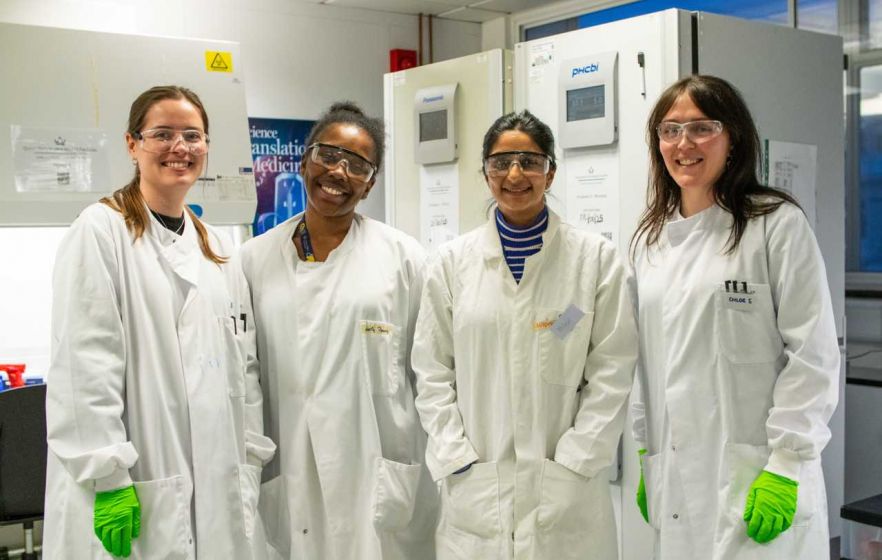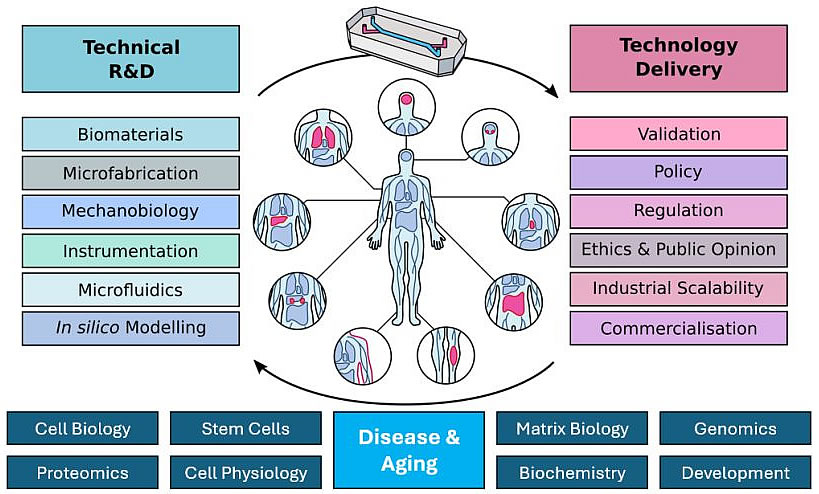EPSRC Centre for Doctoral Training in Next Generation Organ-on-a-Chip Technology (COaCT)
COaCT brings together industry and other stakeholders, working with Queen Mary's world leading scientists and bioengineers to train PhD students in this exciting field.

There is an urgent unmet need, both in industry and academia, for skilled scientists and bioengineers able to develop organ-chip technology and associated predictive in vitro models. We will provide at least 60 industry-linked 4-year PhD studentship, providing students with the skills and knowledge to become future leaders in this multidisciplinary field. The graduates from this Centre for Doctoral Training will help advance this exciting technology in order to transform lifescience research and the medicines development pipeline, delivering safer, more effective therapeutics for the benefit of all society.

Aspects of the CDT training programme covering organ-chip Technical R&D, Technology Delivery and associated biology of disease and ageing


